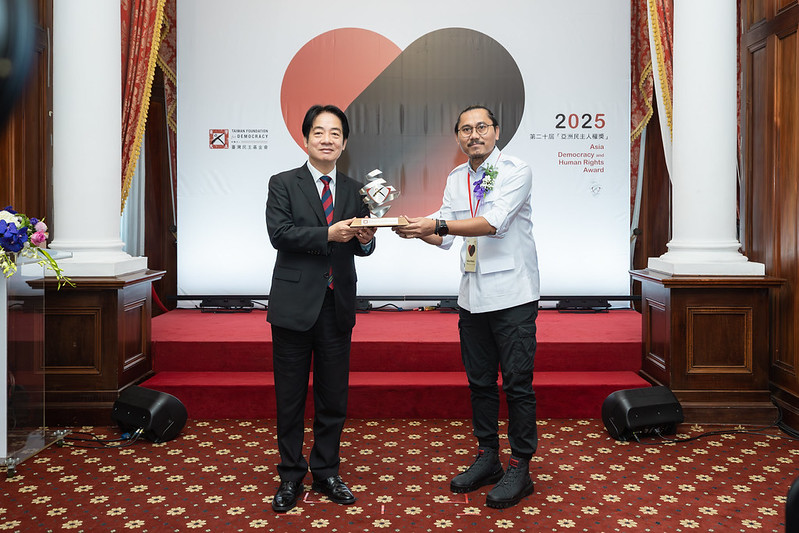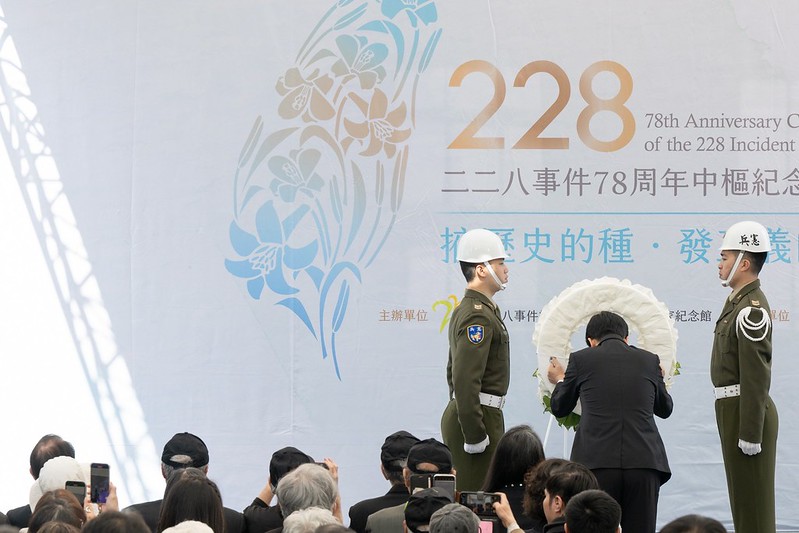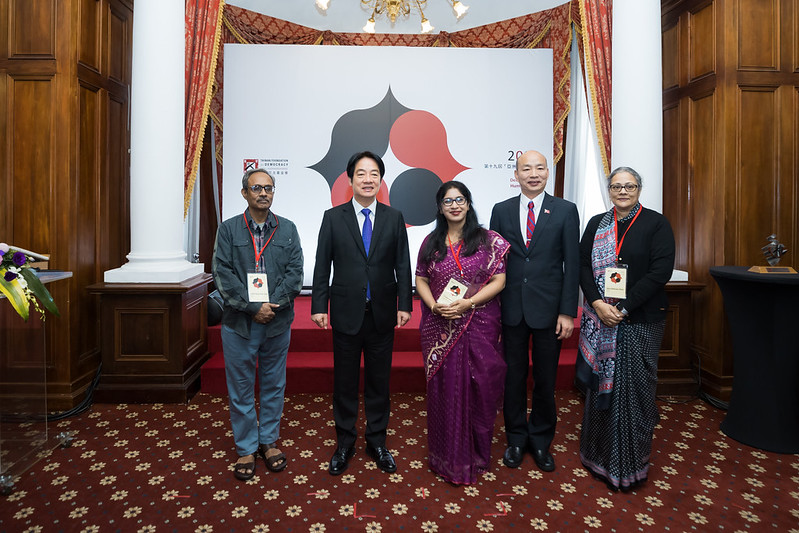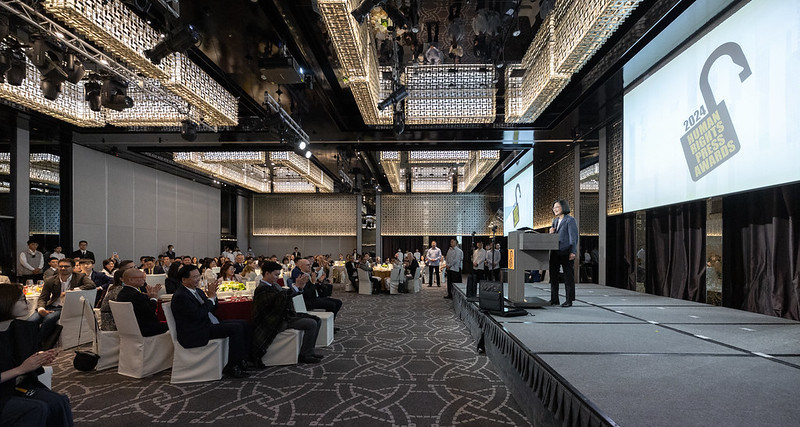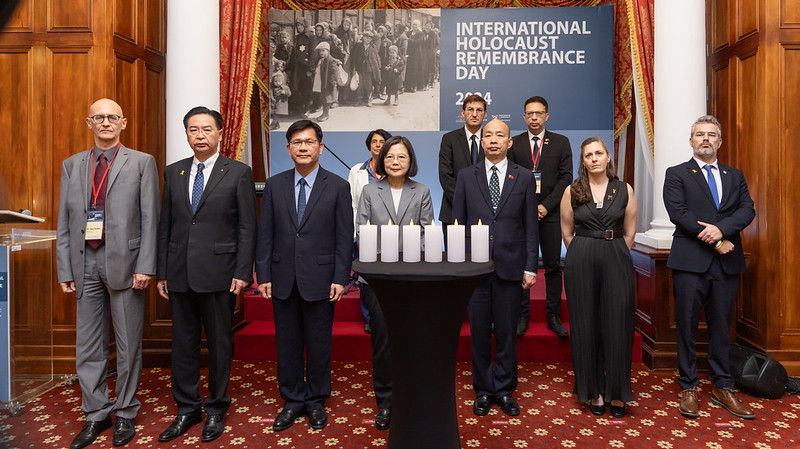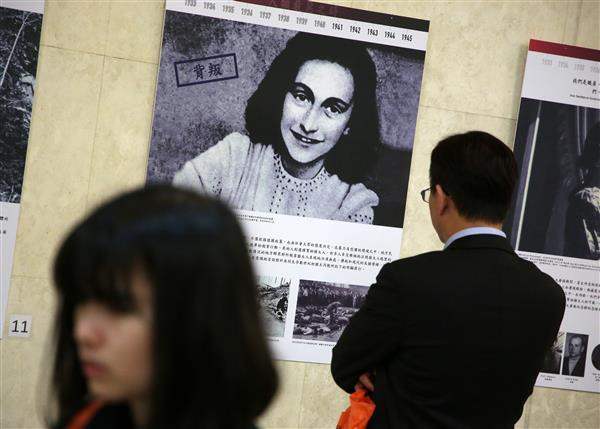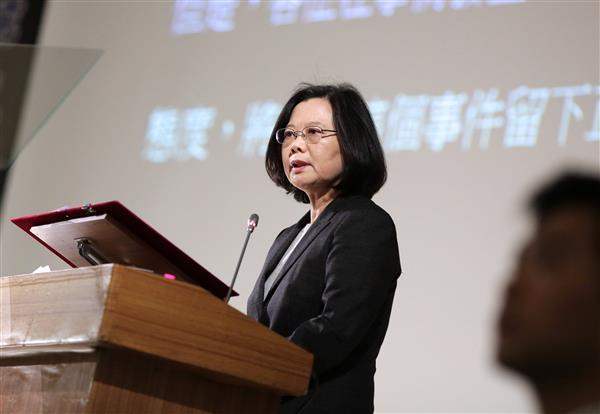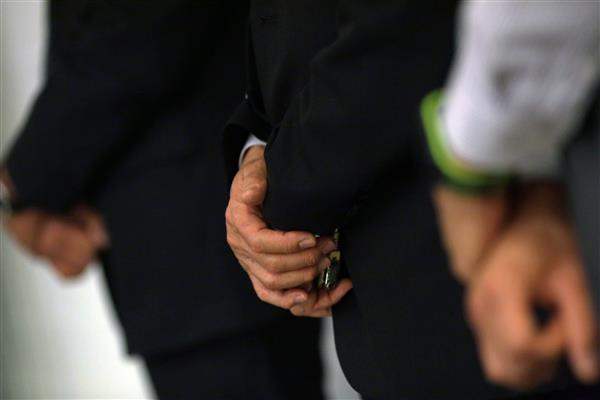News & activities
 News releases
News releases
On the afternoon of February 19, President Tsai Ing-wen delivered remarks at activities commemorating the International Holocaust Remembrance Day. In her remarks, she expressed hope that Taiwan can undertake greater cooperation and exchanges with Israel and Germany in culture, education, and transitional justice, to ensure that lessons of the holocaust will never be forgotten and that Taiwan will continue to right historical wrongs and work towards a future of reconciliation and unity.
A transcript of the president's remarks is as follows:
Representative Asher Yarden of the Israel Economic and Cultural Office in Taipei, Director General Martin Eberts of the German Institute in Taipei, excellencies and heads of missions, honored guests, ladies and gentlemen:
The International Holocaust Remembrance Day is a UN-designated memorial day. I would like to first thank Representative Yarden and Director General Eberts for working together to hold this meaningful event in Taiwan.
In the course of World War II, the Nazi regime perpetrated genocide against the Jewish people, and as a result some six million Jewish people lost their lives.
Among the victims were also millions of Romani people, the mentally and physically disabled, homosexuals, and others who dared to disagree with the Nazis.
This was a dark time in history whose images haunt us still. We see in the diaries of Anne Frank the struggle to survive in the shadows. But we also see the strength of human dignity in Schindler's List.
Works like these remind us over and over that the Holocaust isn't the story of a particular people or country; it is rather a universal story for all mankind, reminding us that never again shall we permit such tragedy to occur.
So for decades after the war, Germany put forth apologies and compensations, promoted holocaust education for all age groups, and passed anti-Nazi measures into law.
As a country with our own history of human rights abuse, Taiwan has much to learn from Germany and its courage to confront history.
Taiwan's society does not have enough understanding of what happened to the Jewish people, and we have not reflected deeply enough about this period in history. Because of this, some in their youth have unwittingly caused offense and touched old wounds.
We are joined here today by a special group of guests, that is: students from the Hsinchu Kuang Fu High School. Just moments before, you all heard their thoughts and reflections.
To the students I would like to say this: I know you have gone through a testing time as well. But the way you have responded to this episode shows that some good may yet come of it.
I have said to the people of Taiwan that the fault lies not with the students, but with the grown-ups, because our education has failed to examine deeply enough the history of state violence against human rights. This is why these errors have been made.
I earnestly hope that we have learned three lessons from this. First, life should never be subjected to such inhumanity. Second, we cannot make light of such solemn historical events. And third, those who violate human rights are never to be imitated.
We sincerely thank our Israeli friends for their understanding, which has allowed us to turn this into an educational moment.
This is an opportunity that our educational institutions have seized to promote human rights education with renewed vigor, so that human rights awareness can take deep roots in our society.
Meanwhile, I am eager to see Taiwan and Israel undertake greater cooperation in culture and education, so that lessons of the holocaust will never be forgotten.
I am likewise eager for greater exchanges with Germany on transitional justice, so that Taiwan can continue to right historical wrongs and work towards a future of reconciliation and unity.
Taiwan will work with the entire international community, and we will work with all of you. Let us go forward together on a path of human rights, justice, and peace.
Thank you all.
